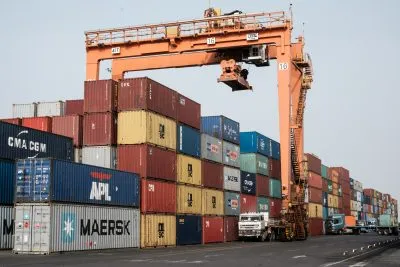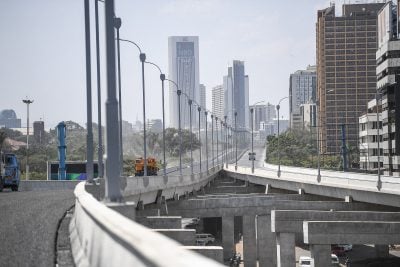The Republic of the Congo has suffered dearly during the oil collapse, and Congolese President Denis Nguesso has pledged that the country will no longer endure the effects of global decision-making in the oil industry without a voice. In an official communiqué announcing the bid for OPEC membership, he stated that he wished to “place our country in the rank of the world’s leaders.”
In January, officials from the Republic of Congo announced the country’s application for membership of the Organization of Petroleum Exporting Countries (OPEC). This is no small move. After years of challenges with the collapse in the price of oil, the Republic of Congo is emerging with a renewed agenda, focused on becoming an active voice on the global stage, rather than a silent victim of international oil price swings.
For Congo, OPEC membership means greater access to information, partnerships, contacts and a voice at the decision-making table. But, perhaps more than ever, it is OPEC that is to benefit from the rise in African political voices.
At nearly 2 billion barrels of proven crude oil reserves in a vastly underexplored territory, Congo represents a sleeping giant amidst African oil producers. An improved business climate has brought profound benefits to the country’s oil industry. New developments by French oil company Total in Congolese territory are set to expand the country’s oil output from 280,000 barrels per day to 350,000 in 2018.
An enhanced sector outlook coupled with new discoveries and strong leadership by younger and more capable leaders is rapidly attracting the interest of investors across the world. The election of Thérésa Goma to the position of director general of hydrocarbons in March is an example of a change in mentality, as is the ascendance of Jean Marc Tchicaya to the position of hydrocarbons minister — a younger and more dynamic figure than any of his predecessors.
Brazzaville is the host city of the headquarters of the African Petroleum Producers Organization, a club that has been gaining renewed relevance in recent years as African leaders search for intra-African cooperation on matters of energy. Further, Congo has also been expanding its bilateral relationships with the likes of Angola, Nigeria and Equatorial Guinea, moving towards a new policy of gas utilization.
The entrance of Congo as an active voice in OPEC can bring a much stronger foothold for the Vienna-based organization in the African oil circle, and reinforce its capability to coordinate production cuts and joint-strategies across the continent when necessary. For OPEC, this means greater representation, greater control over the world’s output, and in the end, greater power.
For Congo, the country will sit side-by-side with key oil giants, like Saudi Arabia and Venezuela; as well as Gabon, Angola, Nigeria and Equatorial Guinea, further reinforcing the strength of African voices amongst the cartel. It will be able to learn and contribute to policy and decision-making, and it will be ever more prepared to deal with the volatility of crude prices.
Congo’s bid for integration within the cartel also comes at a paramount moment for African foreign policy, as dependence on commodity prices and shifts in the international order have made ever more apparent the need for regional and intra-continental cooperation.
OPEC’s new lease of life
The successful results of the production cuts by OPEC have shown the cartel is regaining its standing on the international stage, demonstrating flexibility to new market realities. Mohammad Barkindo, the Nigerian Secretary General of OPEC, spearheaded the landmark December 2016 agreement that saw the oil cartel and 11 non-OPEC members sign on to cut down 1.8 million barrels of crude oil per day (2% of global output), which has been extended until the end of 2018 and resulted in the progressive rising of crude oil to more sustainable prices that we witness today.
However, OPEC cannot sit idle on its own success. The need for coordination with several non-members for any global strategy to work demonstrates how the organization needs to secure a wider net and solidify its position in order to continue to reach its goals. Its agenda is aligned with that of African nations at a time when these players wish to have more control over the commodities they are so dependent on.
Congo’s move towards membership of OPEC is a major landmark step that should not only be greeted and celebrated by the cartel, but also be followed by other nations across the continent. As the world’s remaining frontier market for oil exploration, Africa is increasingly positioning itself as the linchpin region for the future of the world’s energy industry. African nations cannot afford to not be at the negotiating table when the great decisions about their future are made, and neither can OPEC afford to keep them out.
NJ Ayuk is an energy lawyer, a Global Shaper with the World Economic Forum, and a well-known dealmaker in the petroleum and power sectors. He is the author of Big Barrels: African Oil and Gas and the Quest for Prosperity. He is the founder and CEO of Centurion Law Group and the Africa Energy Chamber of Commerce.
Want to continue reading? Subscribe today.
You've read all your free articles for this month! Subscribe now to enjoy full access to our content.
Digital Monthly
£8.00 / month
Receive full unlimited access to our articles, opinions, podcasts and more.
Digital Yearly
£70.00 / year
Our best value offer - save £26 and gain access to all of our digital content for an entire year!
 Sign in with Google
Sign in with Google 



